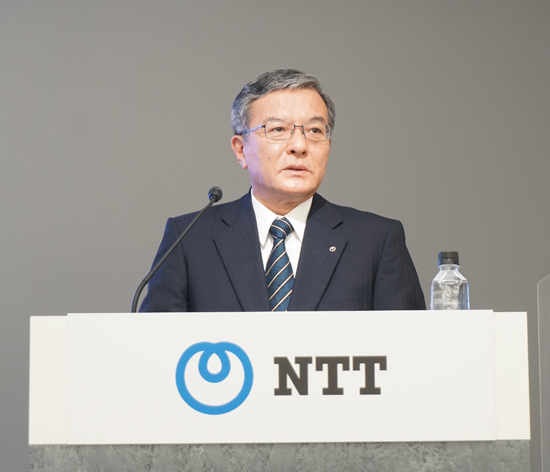Attention is focused on the sale of government stocks NTT

On Wednesday, August 9, NTT announced its financial results for the period from April to June 2023. Operating revenue was 3,111.1 billion yen (up 42.2 billion yen from the previous year), and operating income was 474.7 billion yen (down 28.7 billion yen from the previous year). Sales increased but profit decreased.
Akira Shimada, president of the company, commented, “Mostly progressed as expected. We expect increased sales and profits in our annual plan.”
In the general ICT business, sales increased in the corporate business and the smart life business. Although there was a decrease in profit due to the acceleration of growth investment in the smart life business, profit increased year-on-year due to an increase in profit in the corporate business and cost efficiency improvement in the consumer communication business.
In the regional communications business, upfront costs increased due to a decline in fixed voice-related income, the end of demand for remote work for fiber-optic services, and the renewal of large-scale systems related to procurement and finance. Costs for security enhancements have also increased. In addition, sales and profits decreased due to the impact of soaring electricity bills.
In the global solutions business, in addition to an increase in domestic sales centered on the public and corporate sectors, sales increased due to the impact of exchange rates. Although there was an increase in profit due to the increase in sales, profit decreased due to an increase in costs due to the integration of overseas businesses and an increase in investment for growth.
At the press conference on the 9th, there were a series of questions about the government’s plan to sell NTT shares and revisions to NTT law. A summary of the questions and answers follows.
–The government is considering selling NTT shares
President Shimada The evaluation of the government’s sale of NTT shares is neutral, but there are other shareholders, so if they are sold all at once, it will affect the stock price. It would be nice if the government were to sell stocks over the long term to limit the impact on stock prices.
–Review of NTT Law is also being discussed
President Shimada For example, the obligation to disclose research and development is a provision that was created in the era of monopoly and telephones. We recognize that this clause is a challenge in the current era of economic security issues and international competition.
As for landline phones, the number of users was 13.5 million at the end of last fiscal year. The number is decreasing by 1.5 million each year, and has fallen below 10 million in the last few years.
It is still a deficit business, and the burden of management is increasing. We need to start discussing what to do with fixed-line phones in the future and what to do about universal services.
–The government is also considering strengthening NTT’s international competitiveness
President Shimada Regarding research and development, even if it may be advantageous for Japan not to disclose it, we recognize that there may be issues in terms of international competitiveness in terms of global disclosure.
Since we are developing our business amid free competition, I think it would be better if there were no laws binding on specific companies. On the other hand, we must consider how to ensure the economic security of companies that support social infrastructure, such as telecommunications carriers and electric power companies. Rather than individual companies, it seems that rules should be created for companies that support social infrastructure.
――If NTT Law is revised, NTT Group may be reorganized
President Shimada NTT Law is based on NTT East/West, but NTT East/West is used not only by the NTT Group but also by various telecommunications carriers. We do not anticipate any major changes to the rules relating to the telecommunications business.
